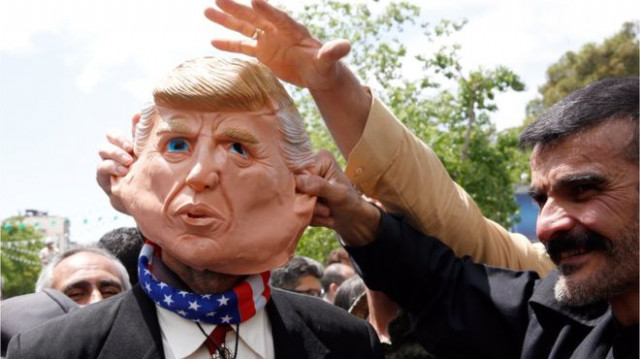 Ukraine reports 5,276 new COVID-19 cases
Ukraine reports 5,276 new COVID-19 cases
 Zelensky: Every third Ukrainian considers road construction one of greatest achievements of 2021
Zelensky: Every third Ukrainian considers road construction one of greatest achievements of 2021
 Ukraine ready to implement Minsk agreements, but Russia's desire needed - Yermak
Ukraine ready to implement Minsk agreements, but Russia's desire needed - Yermak
 Michel: EU unanimously agree to roll over economic sanctions against Russia
Michel: EU unanimously agree to roll over economic sanctions against Russia
 Actions by Ukraine's partners will help prevent worst-case scenario - Zelensky
Actions by Ukraine's partners will help prevent worst-case scenario - Zelensky
 COVID-19 in Ukraine: Health officials confirm 8,899 daily cases as of Dec 17
COVID-19 in Ukraine: Health officials confirm 8,899 daily cases as of Dec 17
 Macron tells Zelensky he declared support for Ukraine in call with Putin
Macron tells Zelensky he declared support for Ukraine in call with Putin
 Zelensky, Scholz discuss gas transit through Ukraine after 2024
Zelensky, Scholz discuss gas transit through Ukraine after 2024
 Ukraine ready for any format of talks with Russia - Zelensky
Ukraine ready for any format of talks with Russia - Zelensky
 Ukraine’s only journalist in Russia facing extremism charges - lawyer
Ukraine’s only journalist in Russia facing extremism charges - lawyer
 PM Shmyhal: First two applications for investment projects worth $96 million filed
PM Shmyhal: First two applications for investment projects worth $96 million filed
 Zelensky, PM of Italy discuss security situation around Ukraine
Zelensky, PM of Italy discuss security situation around Ukraine
 President signs off State Budget 2022
President signs off State Budget 2022
 London considering all options for responding to Russia's aggression against Ukraine
London considering all options for responding to Russia's aggression against Ukraine
 Putin, Biden to hold another round of talks
Putin, Biden to hold another round of talks
 Some 260,000 Ukrainians “victims of human trafficking” over 30 years - prosecutor general
Some 260,000 Ukrainians “victims of human trafficking” over 30 years - prosecutor general
 Ukraine plans to create center to protect energy infrastructure from cyber attacks
Ukraine plans to create center to protect energy infrastructure from cyber attacks
 No clear idea so far when Normandy Four top diplomats set to meet - German Ambassador
No clear idea so far when Normandy Four top diplomats set to meet - German Ambassador
 Ukraine receives EUR 600M in macro-financial assistance from EU
Ukraine receives EUR 600M in macro-financial assistance from EU
 Zelensky holds phone conversation with PM of Israel
Zelensky holds phone conversation with PM of Israel
 Ukraine sets new daily COVID vaccination record
Ukraine sets new daily COVID vaccination record
 MFA: European Union has not yet removed Ukraine from list of safe countries
MFA: European Union has not yet removed Ukraine from list of safe countries
 Kyiv records 1,023 new COVID-19 cases, 29 deaths
Kyiv records 1,023 new COVID-19 cases, 29 deaths
 G7 ambassadors welcome adoption of law on NABU status
G7 ambassadors welcome adoption of law on NABU status
 Ukraine can increase Covid vaccination rates to 1.5M a week – Liashko
Ukraine can increase Covid vaccination rates to 1.5M a week – Liashko
Iran is facing "unprecedented" pressure from international sanctions, President Hassan Rouhani has said.
Renewed US sanctions had led to worse economic conditions than during the country's 1980-88 war with neighbouring Iraq, Mr Rouhani said.
His comments came amid rising tensions with the US, which last week deployed warships and warplanes to the Gulf.
Mr Rouhani, who has come under domestic political pressure, called for political unity to face down sanctions.
"During the war we did not have a problem with our banks, oil sales or imports and exports, and there were only sanctions on arms purchases," Mr Rouhani told political activists in the capital, Tehran.
"The pressures by enemies is a war unprecedented in the history of our Islamic revolution ... but I do not despair and have great hope for the future and believe that we can move past these difficult conditions provided that we are united," he said.
The US-Iran escalation has put into question the future of the landmark 2015 nuclear deal that Iran signed with the five permanent members of the UN Security Council and Germany.
US President Donald Trump last year unilaterally abandoned the deal and re-imposed sanctions - and Iran has indicated it may also resume nuclear activities if the other partners go along with American sanctions.
What pressures is Iran facing?
President Rouhani has personally come under pressure from hardliners in Iran after the US withdrawal from the nuclear deal his administration negotiated.
Under the accord, Iran had agreed to limit its sensitive nuclear activities and allow in international inspectors in return for sanctions relief.
US sanctions - particularly those on the energy, shipping and financial sectors - have hit oil exports and caused foreign investment to dry up.
The sanctions prevent US companies from trading with Iran directly and also with any foreign firms or countries that are dealing with Iran.












































































































































